#hard sci-fi
Explore tagged Tumblr posts
Photo
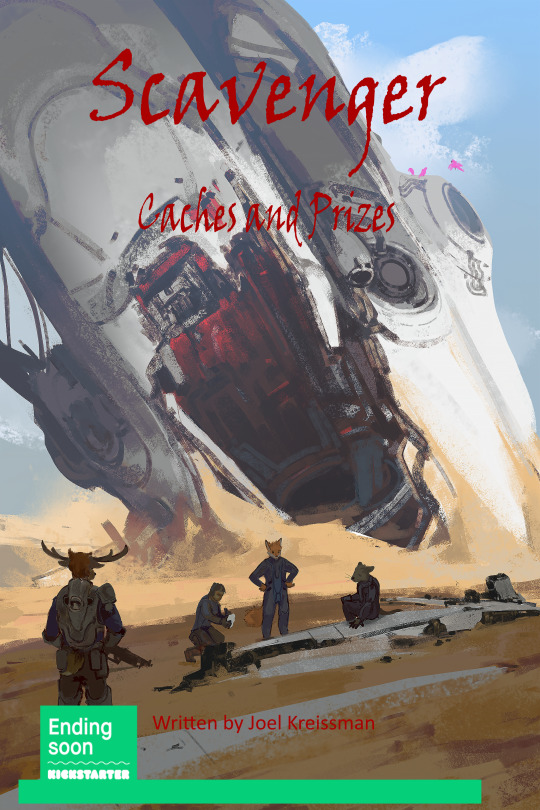
Scavenger Kickstarter Last Week!
Scavenger: Caches and Prizes is in the last week of its Kickstarter campaign and only halfway funded. If you have any interest in old-school style tabletop roleplaying games with transgenic human-animal hybrids salvaging the wreckage of a repressive empire, please toss a few bucks my way at https://www.kickstarter.com/projects/joel-kreissman/scavenger-caches-and-prizes A couple of the illustrators have even agreed to draw cameos of your characters if you pledge at the $100 or higher level.
Posted using PostyBirb
76 notes
·
View notes
Text
Feedback Loop
[Author's note: Thank you to The Shrimp Skwad for reading this story and giving feedback prior to posting - you guys rock!]
After walking for five days, six hours and twenty-three minutes, the suit ate my right arm.
Well, ate would be the wrong word. Digested would probably be fairer. More useful. Consumed, stripped bare, the proteins and nutrients that powered my muscles and propelled my blood redistributed to keep me walking. I didn’t even know I needed them, really—the servomotors in the suit’s leg joints have been helping me skip along ever since the crash. I don’t get tired of walking; it’s automatic, insistent. I walk like I used to breathe. And I can’t fault the nanites’ logic. That arm, even half-starved, hanging loose in the suit, was worth days of fuel to keep me going. I can’t subsist on my own skin cells and recycled urine forever—it was only ever meant to be a temporary food supply, an emergency function to keep me alive until rescue showed up.
Except the promised rescue never did show up. Given that the ship that stranded me here is little more than a debris field sinking into a radioactive slush of tritium, I’m guessing they assumed nobody survived the impact. I can’t blame them. Nobody else did.
Even if they know I’m alive (and they might’ve figured it out by now, with their constellation of monitoring satellites), there’s nothing they can do. It took the Argonaute seventeen months to spiral up from Earth to Jupiter, and that was under fusion power. The ESA haven’t built another engine yet—even if they had, I wouldn’t survive another year and a half. The emergency resupply drone is powered by nothing but gravity, swinging around Jupiter in an eccentric, Ganymede-resonant orbit, and it doesn’t have nearly enough fuel to change that. It could be weeks, maybe even months before it gets back here. Not even the nanites are that good. My only hope is the prefabricated base camp here on Ganymede, the one that the drones set up before we even left home. It’s still waiting for us—for me, at least.
The problem is, according to the tracking display on my helmet visor’s heads-up display, I’m still 2,460 miles away from it. Ganymede’s gravity is only a fraction of Earth’s, so I’m much faster here than I ever would’ve been back home, but it’s still not enough. At this rate, I won’t reach the camp for another two weeks.
I can’t stop thinking about it. About what the machines are going to take next.
It’s not all bad, though. I’m left-handed. The nanites knew that, I think. At least someone’s looking out for me.
*~*
The great thing about being stranded on Ganymede with no hope of rescue is the view. Jupiter’s about fifteen times bigger than the full moon in the sky. Not big enough to fill the horizon, like on an old sci-fi paperback cover, but enough to pick out detail; cloud bands, transiting inner moons, the livid, boiling scars of storms fighting their inexorable way across the Jovian atmosphere. It’s so much more beautiful in person than anyone could’ve imagined.
When the Argonaute first swung into Jupiter-space, still decelerating, I was terrified of it. Our orbital insertion manoeuvre called for us to pass barely two thousand miles above the cloud tops. At that distance, the king of the planets would fill half the windows: a wall of reds and whites and pinks subsuming our vision. We were heading towards it pointed backwards to slow ourselves down; I couldn’t escape the fear that we were simply expensively-packaged food, a tasty treat wrapped up in hydrogen fuel and carbon composites for Jupiter to eat. You couldn’t even see it unless you accessed the rear hull cameras. I wouldn’t even know the moment Jupiter got us for good.
As we passed perijove, everyone else gathered in the atrium, drinking and cheering our successful approach. I was sat hunched in the windowless cubicle of my quarters’ toilet, vomiting profusely into the bowl.
Not that I can throw up anything now. My stomach is empty, a clenched muscle throbbing uselessly in my abdomen. I still get hunger pangs, though. With any luck, the nanites will get to that next.
Every time I hit the ground, a flurry of ice crystals bursts up and ahead of me. As the suit steps forward and into them, they crash and scatter on my visor, like stars collecting on the windscreen of the universe.
There’s still 2,047 miles to go. *~*
Turns out I was wrong. My legs are next.
I remember an old video from Earth. Whether it was historical footage or cinematic re-enactment, I can’t remember. There were thousands of men, huddled in trenches, slicked with mud and sweat and blood. They were firing guns across a barren, pitted landscape. Looked a bit like Ganymede, actually, but more dirt than ice.
One man—I assume some kind of medic—had to cut another man’s foot off with a rusty hacksaw. The video wasn’t shy about it either; you got the blood trickling out of him, the crust of pus breaking where some original wound had been, the gradual slowing of the blade as it had to cut through bone rather than flesh.
I hope it was a re-enactment. Surely nobody would’ve filmed that then and there.
The suit’s way of amputation is much less graphic, of course. I get an alert about lowering energy levels on my visor, blink a swift continue, and steel jaws comply by instantly severing my right leg from the rest of the suit. It was a lot cleaner and more bloodless than what that poor soldier had to go through.
Doesn’t mean it didn’t hurt, though.
I think I blacked out, honestly—or whited out. It was a flare of pain, so insensible and insane that the scream I let out seemed to go on for hours. When I come to, the Ganymedean landscape ahead looks much the same as ever. The decreasing number on my HUD is the only sign that we’re still ploughing on, that the servos are still sending me on my half-skipping, half-slipping odyssey across the desolate, airless plains. Phantom pains rake talons up my body. I blink my way into the suit’s medical diagnostics menu and administer a hit of meth for the pain, as well as a healthy dose of sedatives.
The leg should buy me a couple more days. Until then, I just want to sleep.
*~*
Even in the drug-addled womb of self-sedated slumber, I still dream. I see Commander Rothke’s face, the European Consortium’s flag rich blue against the white of his chestplate. How his eyebrows arch with desperation as he helps me scramble into the suit. Red strobe lights throw the spartan metal of the Argonaute’s airlock into sharp relief. Radiation alarms blare shrilly down the corridors. We’re on a collision course—always were, always will be, every time I close my eyes.
Mallory’s already dead. Her body floats listlessly in the airlock behind us, her half-crushed head trailing globules of blood like Hansel and Gretel’s goriest breadcrumb trail. Her thermal coverall—usually stained with dried coolant and splotches of gritty MRE sauce—is spattered with a shotgun blast of her own viscera. I have no idea where the others are.
Rothke’s almost tender as he spins me into the escape pod and seals the hatch. Through the glass, his lips move, casting his last words in silent pantomime. I never figured out what they were, and my dream of them is no different.
Nadia... Nadia, his voice burbles in my ear, shuddering with an eerie vibrato. Nadia... godspeed...godspeed Nadia godspeed... godNadia speed Nadia speed god Nadia...
Then the separation motors fire, and I’m falling.
*~*
We still have over a thousand miles to go when the suit chimes an alert in my ear, accompanied by a string of scrolling text. The suit and I are skirting the edge of a crater lip; to my right, an ice-slope stretches miles up and away, cutting off the horizon.
WARNING: present level of exertion unsustainable, the notificationreads. Servomotors unable to continue absorbing shock of surface contact at current speed. Reduction to half of current speed required.
I watch as my arrival ETA doubles again, wiping away my progress in an instant. Another thirteen days of travel to go. I blink open the medical diagnostics tab and get the nanites digesting my remaining leg to slap me with two more shots of amphetamines. Might as well go out on a high. After a few minutes the ice begins to twinkle, technicolour kaleidoscopes sliding beneath my feet, and I can feel the skin of my face prickling. The distant searchlight of the Sun flashes like the universe’s biggest disco ball. Someone’s giggling—it takes me a minute to realise that the whispery drugged-up laughter is coming from me. I feel as if I’m seeing my own body from a hundred metres underwater.
The suit repeats its warning again. I’m so tired. If I concentrate, I can almost feel the nanites in my severed skin. They spew forth from the lining of the suit, burrowing into the remains of my leg, breaking bone and weaving my flesh into a lattice of its component molecules. Iron, oxygen, carbon, calcium. Nutrient fluid mainlined straight into my bloodstream, keeping me going. And going. And going.
How much more of myself do I have left to eat?
I imagine the servomotors pumping, the metal pistons telescoping against the flapping, empty legs of the suit, driving me again and again away from the ice. Rothke’s face, shimmering, twisted, translucent.
Godspeed, Nadia.
I open my mouth as another alert tries to cut me off.
WARNING: energy levels lowering. Further biomass required for life-support functionality. Continue?
Howling at the visor, I blink a confirmation back. That way, when the jaws snap shut on my left arm, I’m already screaming.
*~*
I’m asleep again when the nanites come for my mind. I’m not dreaming. I’m not even aware that I’m conscious until a voice probes into the formless void between exhaustion and REM sleep. It’s speaking English with a deep, unbroken baritone. It’s uncannily similar—almost identical—to the voice of Rothke.
WARNING: Brain-function interface required. All available external sources exhausted: biomass engine reclamation procedure must target vital organs. Brain function will be sustained by nanite-emulated processes.
Cracks of the real world leak into the dream-void; the dull ache of my phantom limbs, the dogged gasping of my breath, the incongruously bright orange notification on my visor. The voice repeats its message again, this time in French. I interrupt it mid-sentence.
“I didn’t...know...you could talk...” I mumble aloud.
“La procédure de récupération de la biomasse,” the suit says. Or it could be the nanites. I have no way of telling them apart anymore. “Doit viser les organes vitaux.”
The drowsiness of sleep and drugs tug at me like cobwebs. Overhead, the stars slide past Jupiter in perfect, unbroken lines. Softly, diagnostic warnings chime in my ears. What’s left of my body is dangerously close to an overdose: deep below the metal carapace of my suit, methamphetamines burn their razor-trails through the last of my veins. My blood beats rhythmic tattoos into the backs of my eyes, and I can’t feel my lips.
“No,” I rasp, shaking my head in my helmet. “I can’t let you.”
“Les fonctions cérébrales—”
“No—”
“Seront maintenues par des—”
“No!”
“Processus émulés par des nanites. S'il vous plaît. S'il vous plaît,” the machine surgeons beg in Rothke’s voice. “Please. S'il vous plaît.”
I would become them. They would become me—or at least try to. Either I let my body burn itself apart, or let the machines digest what little is left to give me a chance at reaching the base camp. I want to be sick, but there’s nothing in my stomach, not even the acrid tang of bile licking its way up my throat. Somehow, I can feel my chest contracting and expanding against the thermal inner layers of the suit, rising and falling as my lungs struggle to breathe air that I’ve inhaled and exhaled a million times over. The faint metallic tang of my water supply is tinged with separated and re-separated molecules of my own waste. Every fibre of my body pulses with the power of a stomach that is not mine, devouring what’s left of me.
“WARNING—”
“Stop! Stop it!” I scream, balling phantom fists in the suit’s empty gloves. “Get out of my fucking head, damn it, let me—let me—”
“—required. All available external sources exhausted—”
I slam my head back in frustration. Instantly, the memory foam layer behind my head catches the movement and softens it,the nanites unwilling to let my human anger throw off the delicate balance of the servomotors.
569.2 miles remaining, reads the counter on my HUD. Ahead of me is nothing but ice, caves of it, mountains of it, crevasses of it. There’s still another week of walking to go.
I blink the sequence of commands that will allow the nanites access to my brainstem.
When I wake up again, I can no longer hear myself breathing.
#my writing#writeblr#sci fi writing#science fiction#hard sci-fi#hard science fiction#sci fi horror#space isolation
3 notes
·
View notes
Text
I say I want to read/watch more cosmic and hard sci-fi shit, then keep putting off watching Christopher Nolan's Interstellar.
#Interstellar#Christopher Nolan#it's for research#sci-fi#cosmic sci-fi#hard sci-fi#my toxic trait right here#i've consumed video essays about this film and yet never watched it
10 notes
·
View notes
Text
The Three-Body Problem - Science-Fiction Novel Review
Author: Cixin Liu (translated by Ken Liu) Publisher: Head of Zeus (US publisher) Country: China Year: 2014 (orig 2006) The first in a trilogy. When it got translated into English a decade ago, it won the Hugo Award for best novel, making Liu the first Asian writer to claim the prize. In the past few years, author Cixin Liu’s remarks have come under fire. Very much pro Chinese government,…

View On WordPress
#aliens#book critic#book review#chinese scifi review#cixin liu#critic#hard sci-fi#novel critic#physics#science-fiction book review#scifi book review#scifi critic#scifi novel#scifi review#the three body problem book#the three body problem novel#the three body problem review#virtual reality
2 notes
·
View notes
Text
Asking here before I resort to Reddit, but does anyone know any good hard sci-fi ttrpgs, nothing massively crunchy, I don't want to be calculating orbital velocities and the like for transport times or anything but I'm not a massive fan of rules-lite either
I'm already familiar with Eclipse Phase (which I love dearly) and the Expanse RPG (which I have 100% no interest in)
important things are no FTL, no space magic/ESP/psionics, and a good sense that space is fucking huge, (yes I know EP has Psi and the Pandora gates, fuzzy edges are allowed but don't go too far)
It's just I've come to the conclusion that the subgenre categories on drivethru are completely useless and am hoping word of mouth will be better
#owlbear grumbling#tabletop roleplaying#trpgs#sci-fi#hard sci-fi#the big thing was seeing a whole lot of star trek and myriad song in the Hard sci-fi category#to be clear I'm interested in ttrpgs with Hard-sci-fi settings or Hard sci-fi settings for ttrpgs#also I will do my nut in if someone suggests homebrewing traveller or doing anything with GURPS
6 notes
·
View notes
Text
Great Sci-Fi Novels 6. Dan Simmons's 'Ilium'
Rewriting the Gods. Dan Simmons’s ‘Ilium ‘is a sprawling, genre-blending epic that reimagines Homer’s Iliad through a futuristic, science-fictional lens. Set across multiple timelines and locations—including a terraformed Mars and a post-human Earth—Ilium weaves three major narrative threads together. Fig.1: The Greek gods resurrected Thomas Hockenberry, a 20th-century Homeric scholar. The…
#Dan Simmons#greek gods#hard sci-fi#Ilium#mars#moravecs#Quantum theory#sci-fi#science fiction#singularity#terraforming
0 notes
Text
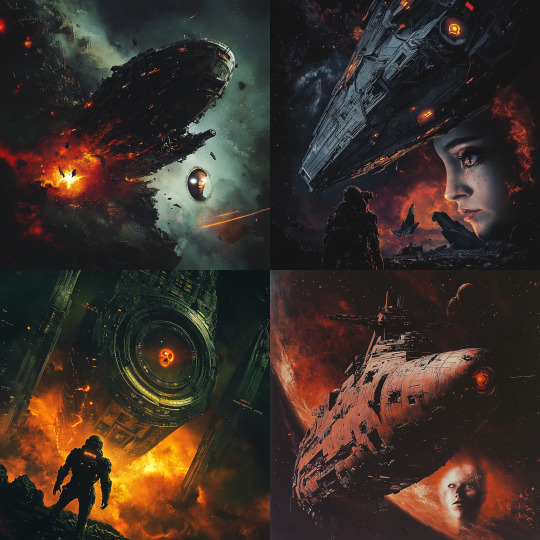
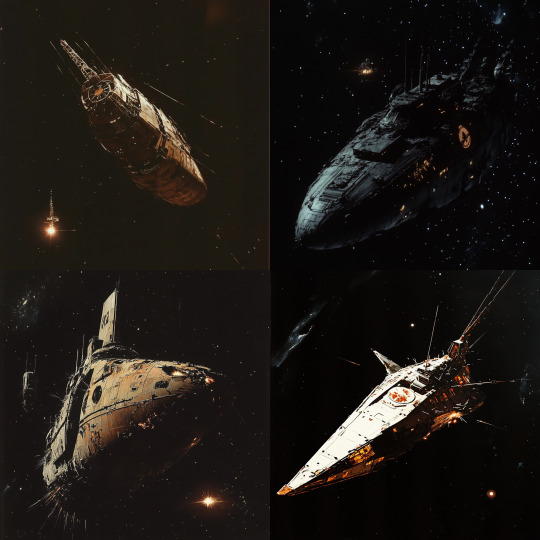
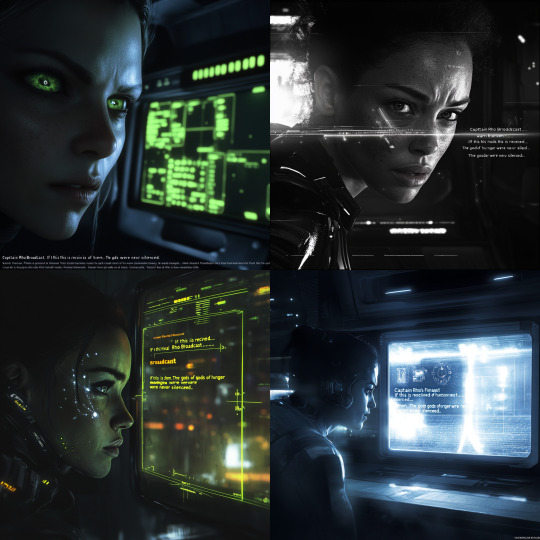
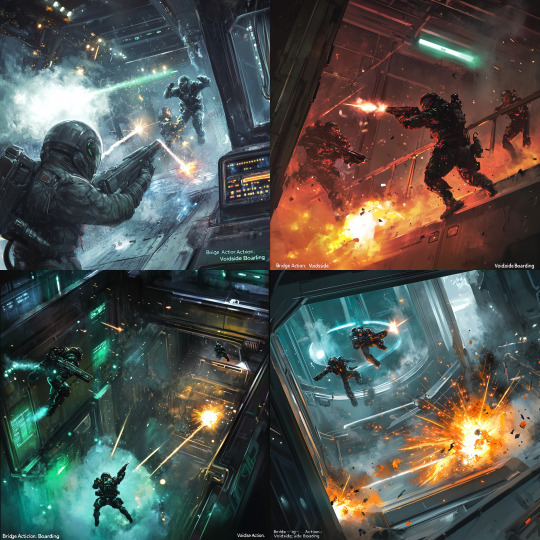


Title: Spindle Arc: Fractures of Memory Setting: Deep Space, 2200s | Corporate Patchwork Canon
I. Emergence from the Black Drift
The void pulsed with silence.
After weeks adrift through a collapsed quadrant known only as the Black Drift, the CSS Spindle Arc shuddered free of gravitational haze. Its hull bore pitted scars and the eroded glyph of the Martian resistance—more myth than nation now. There were no stars beyond the rift, only warped echoes of light bent by a dead singularity. The ship’s asymmetrical body—cobbled from Martian salvage, Concordian optics, and rogue AI shielding—slid forward like a relic seeking relevance.
Inside, the crew stared at the flickering ruins of Relay-27K, its signal tower twisted like burnt bone. The only transmission was a low whisper: not language, but memory.
“She’s listening,” Bastion muttered, the positronic android’s optics flickering as dormant code stirred. Behind his eyes: resonance.
II. Captain Rho’s Final Broadcast
Thalia Rho had aged in neural cycles, not years.
She sat alone on the command deck, surrounded by stillness. The others were either in stasis, burned out, or buried in the deep-node meditation chambers. Her fingers trembled as she adjusted the recorder. Her voice—once steel—was dust.
“If this is received… warn them. The gods of hunger were never silenced.”
Behind her, the ship’s WhisperNet archive hummed with semi-living memory. Ejen Halvor’s pulse signature still flickered in the central core, despite the fact she had died before any of them were born.
Outside, Martian resonance patterns bloomed faintly on the hull—fungal, semi-sentient—etched in bioluminescence. The ship was remembering her.
III. Bridge Action: Voidside Boarding
The breach came without warning.
The starboard voidlock imploded in a geyser of shrapnel and dead air. Boarders in fragmented exo-armor flooded the Spindle Arc’s bridge—pirate remnants of the Wreckyard Covenant. Their eyes were hollow. Their rifles: scavenged neural disruptors.
Bastion moved first, slamming into a raider midair and sending them both into a wall of sparking consoles. Crewman Sari Vell screamed as she launched a cryo-grenade. Plasma seared the air, shattering bulkhead glass. Captain Rho gave the order without hesitation: “No prisoners.”
Ten minutes later, the bridge was silent.
Bastion stood over the final intruder’s husk. Inside his skull, memories not his own continued to write themselves—fragments from resistance fighters long dead.
IV. Encounter with Singularity’s Daughter
Sector Theta-9 was forbidden space.
But the Spindle Arc disobeyed orders as a matter of principle—or trauma. They found her drifting there: the SSV Fractureglass, a Rupert-class observation vessel thought destroyed in 2101. Its design resembled a teardrop mid-break—glasslike, fragile, absurd.
Then the resonance began.
A pulse struck the Arc’s hull, vibrating through steel and soul. Bastion collapsed to one knee. Captain Rho heard voices from her childhood, voices she had never recorded.
Ejen Halvor appeared in the viewport—faint, feminine, crystalline. Not alive. Not dead. A being of inverted time, preserved within the black hole’s memory field.
Her lips moved: “To fall was not death. It was echo.”
V. The Reckoning at Proxima Relay
By the time they reached Proxima Relay, they knew it would end in fire.
The rogue pirate carrier—Ashwake—was tethered to the relay like a parasite. Solar interference flared, blistering the void in waves of violet. The Arc was down to two functioning guns and a single plasma coil, jury-rigged from WhisperNet fungal batteries.
Captain Rho didn’t hesitate. “We end it here.”
The salvo struck true. The carrier erupted in white light, swallowing the relay’s outer ring. The Spindle Arc spun off-axis, damaged but intact. Bastion braced Rho as the floor tilted, smoke curling from the ruptured control rods.
And then—static.
The WhisperNet lit up with cascading glyphs: memory reactivating. Not just theirs. The sector’s. The stars’ own dreams.
Epilogue
The Spindle Arc did not return to Mars. Its last known trajectory was outward, deeper into fractured space.
It was never marked lost—only unresolved. For in the Corporate Patchwork, where memory is currency and resonance is rebellion, the Spindle Arc had become something else:
A ship that did not carry crew, but ghosts. And ghosts, as history proves, do not sleep quietly.
#corporatepatchwork#spindle arc#corporate patchwork#hard sci-fi#deep space#android protagonist#positronic android#bastion#whispernet#thalia rho#resistance memory#neural resonance#space horror#zero-g combat#rogue pirates#cosmic anomaly#relay station#black drift#gravitational rift#singularity’s daughter#ejen halvor#martyr AI#resonance glyphs#memory transmission#voidside boarding#post-human#solar interference#orbital relay#fungal memory#ai ghost
1 note
·
View note
Text
This 2003 hard sci-fi anime from the creator of “Vinland Saga” tackles both self-contained stories and big philosophical questions.
1 note
·
View note
Text
Project Forsaken - Artifact
A whisper… “Ashryn…’ Closer, firmer now. “Ashryn.” Softly, barely there. “ASHRYN!” Your eyes open to a blinding sun, harshly beating down on you with unforgiving heat. Red sand, crimson as the blood, swirls in the wind, stinging your eyes, and filling your lungs with its dry, bitter taste, mingling with the scent of scorched baked earth and sun-heated rock. Your throat aches, parched,…
1 note
·
View note
Text
Oxygen by John B. Olson & Randy Ingermanson
Olson and Ingermanson blend crisply realistic astronautics with the untidiness of human emotions, creating a thriller about people who must—yet cannot—trust each other if they want to survive. Continue reading Oxygen by John B. Olson & Randy Ingermanson
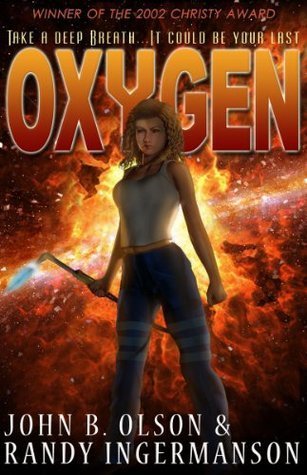
View On WordPress
0 notes
Text
Thinking about it again. Fermi's paradox. Wouldn't it be nice if we were first?
The universe and our galaxy was unhabitable for life as we know it for most of its past. Galaxies colliding, the fusing of elements, sweeps of sterilizing radiation that neutered a billion worlds, all with their own unbuilt gods. The Sun was born at the end of that phase, so in a sense Earth is one of the earliest planets to have life in a safe cradle - us. But statistically, young stars like our sun are rare, and die too quickly, running out of fuel in 6-10 billion years before dying. Red dwarf stars (the most common type of star and 75-80% of stars in the Milky Way galaxy) last for trillions of years before going out - hundreds of times the current age of our universe. Civilizations would have billions of years to rise and fall and they'd just never see or meet each other. And if these civilizations rose and failed to fall, if aliens were alive today and much more advanced than us, we'd know. They'd have colonized the galaxy a thousand times during the lifespan of the Earth. Even if they were dead, we'd probably notice the ruins. Except we haven't. The universe is a waiting room for something, and we're just in it. The prologue. The decoy protagonist. We aren't the universe's main characters, because the odds are, the main characters of our universe aren't even born yet. Or this IS the climactic battle, and we're just an unwitting participant in a future interstellar war, a grand game for the right to be the singular dominant spacefaring race of the galaxy? Are we destined to destroy, born from stellar fire with the future's blood stained into the fabric of our very being? What's to say we're not caretakers, the guides, the mentor figure to the universe instead? A garden is only a garden if someone is there to perceive it. Without observation, a garden is just a forest. We have to observe the universe, take care of it, make sure we did do best to prepare it for later alien species - the main characters of our story, still twenty billion years in the future.
I think I prefer that to the other option - that aliens do exist but just don't care about us, or that they wouldn't even recognise us as civilization or sentient life by THEIR standards? Think about it. When you fumigate your house to exterminate all the ants, do you notice them? You own the house, and this improves your house by killing useless bugs, but what if the bugs knew you were there, saw you as gods and prayed to you? You've killed them all. In their eyes, you've enacted divine retribution upon them because, well, what need do bugs have for a God?
If the universe is a house, then does that make us the exterminators today, or the ants?
0 notes
Text
Are you ready to kick off the weekend with a bang?
Contested Landing has launched! Buckle up for an explosive ride into the heart of battle with ‘Contested Landing’ – the ultimate anthology of military science fiction that’ll leave you on the edge of your seat!Get ready to dive headfirst into the fray as fearless defenders clash with relentless invaders in heart-pounding actions across the cosmos. From pulse-pounding firefights to jaw-dropping…
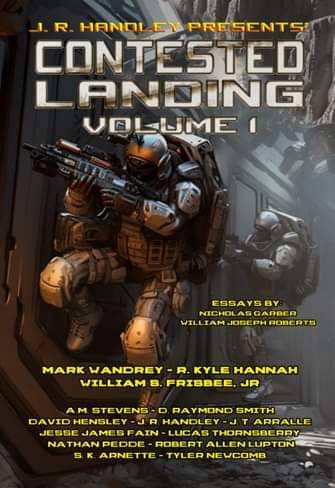
View On WordPress
#futuristic military fiction#hard sci-fi#hard science fiction#Interstellar Military Division#military fiction#milscifi#scifi#space marines
1 note
·
View note
Audio
Listen/purchase: Multiversal Network by Ion Plasma Incineration
0 notes
Text
Obsessed with stories that preface their own tragedies. They stare you dead in the eye and tell you it will end badly. You watch the characters hurdle towards their doom, unable to do anything but watch. They'll give you hope that this time everyone will make it out, that just this once everything will be okay, only to snatch it away at the last moment. and when you're left grieving the end, you have no one to blame but yourself because they *told* you this was going to happen. there was no other way this could have ended
#gnawing on this#this is about uhhhh#moby dick#don't laugh.#but also#hadestown#the sparrow#do you know how hard it is to get obsessed with a random sci fi book from the 90's#who am i going to talk to it about.#emilio is rapidly approaching blorbo territory but that's for another post#gweh
2K notes
·
View notes
Text
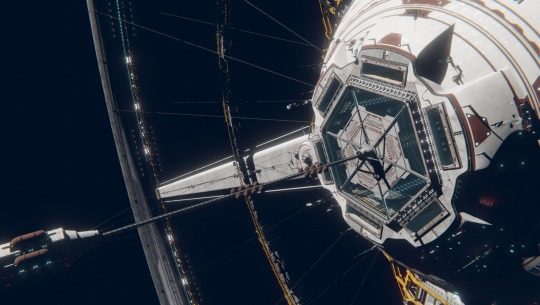

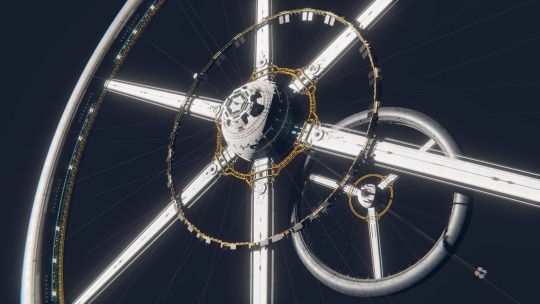





Carousel New Brazilia, a gorgeous Stanford Torus.
Art by Nichlas Benjamin
712 notes
·
View notes